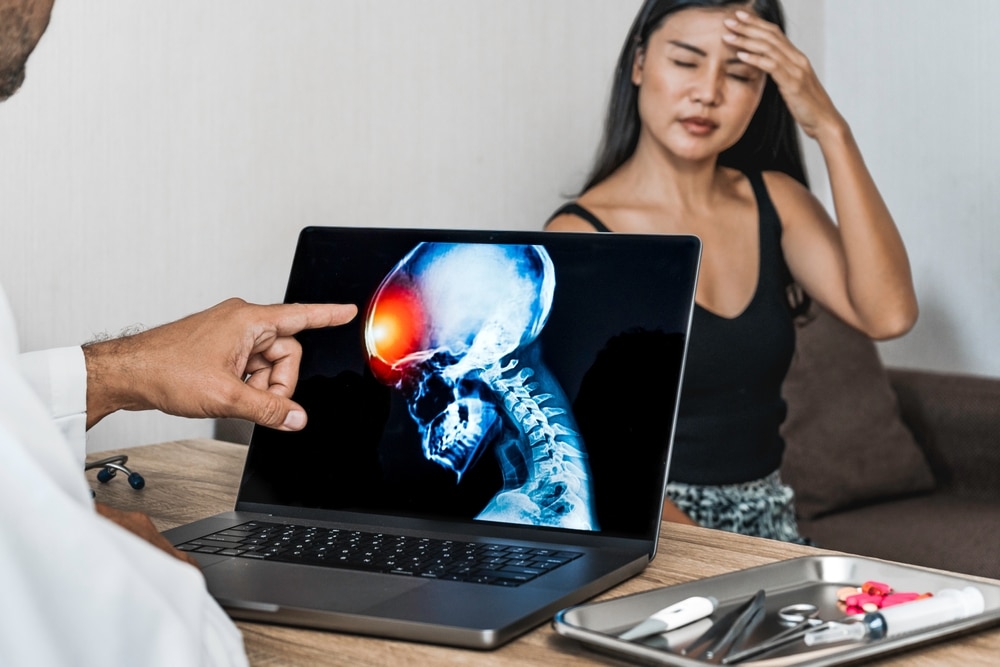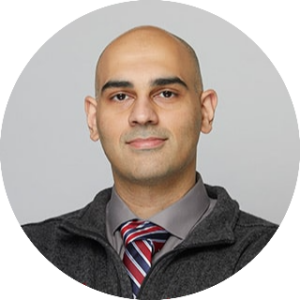Get personalized concussion treatment in NYC by a skilled neurologist — call Neurodiagnostics Medical P.C. today.
Despite knowing that a concussion is a type of traumatic brain injury, not everybody understands how common they are among athletes. According to a 2024 review on sports-related concussions published in the Neurology: Clinical Practice journal, about 3.8 million SRC cases occur in the United States each year, yet an estimated 50% of concussions go unreported.
Professional concussion management is the best way to avoid the many complications you could experience due to this type of TBI. Though concussions can produce temporary symptoms, severe cases can result in lasting physical and mental problems.
If you need help finding an experienced neurologist in New York, turn to Neurodiagnostics Medical P.C. We specialize in diagnosing and treating neurologic sports injuries as well as preventing secondary injuries from occurring.
How Does a Traumatic Brain Injury Affect an Athlete’s Mental Health?
Any type of traumatic brain injury can result in mental health changes, even mild concussions. Brain injuries can worsen mental disorders or cause new symptoms when it can’t function properly.
It’s not uncommon for athletes to experience problems like anxiety, anger, or mood swings. According to a 2019 study on athlete’s mental health, up to 35% of elite athletes report having a mental health issue. The effect on mental health could stem from the concussion, emotional trauma from the accident, and post-injury stress.
Short and Long-Term Effects of a Concussion
Concussion management is incredibly important to an individual’s continued health. Athletes of any age can suffer the consequences of a sports-related concussion. For instance, the CDC reports that 2.5 million or 15.1% of high school participants of a national Youth Risk Behavior Survey had at least one concussion 12 months before the survey began.
Post-concussion syndrome refers to ongoing concussion symptoms lasting more than six weeks. Symptoms may include:
- Concentration problems
- Headaches
- Confusion
- Fatigue
Though concussions often have temporary effects like sleep disturbances, sensitivity to light, and headaches, you shouldn’t ignore them, even as an athlete in a physical contact sport. The condition could be more severe than you think.
What’s Chronic Traumatic Encephalopathy (CTE)?

CTE is a common yet complex neurodegenerative disorder resulting from recurring head trauma like concussions. Diagnosing the condition is challenging, but athletes and others with multiple head traumas are more likely to develop it.
How CTE Affects an Athlete’s Mental Health
According to a 2019 news release by the National Institutes of Health, about 20% of people with a mild TBI, like a concussion, experience mental health problems up to six months after their accidents. With CTE, permanent changes to an athlete’s brain injury can cause the following problems with symptoms worsening over time:
- Emotional instability
- Depression
- Aggression
- Suicidal thoughts
- Memory loss
- Problems thinking or reasoning
What Type of Medical Professional Is Best for Concussion Management?
Regardless of your athletic or fitness level, you should seek medical attention from a certified medical professional with experience diagnosing and treating concussions. For instance, neurologists and certified athletic trainers are knowledgeable about traumatic brain injuries, concussions, and their effects on athletes.
Neurologists and concussion doctors are especially helpful with creating individualized neurorehabilitation treatments. They can also provide tips on preventing additional brain injuries.
Contact Neurodiagnotiscs Medical P.C. To Find a Concussion Doctor Near You in New York
Professional concussion management is crucial for ensuring that athletes of all skill levels have the best chances for healing and recovery after a TBI. At Neurodiagnostics Medical P.C., the doctors in our directory offer outstanding personalized concussion treatment in NYC. From headache disorders to sports injuries, we strive to provide comprehensive neurologic care with a personal touch.
Our doctors accept most insurance plans, including worker’s compensation, no-fault, and PIP (personal injury protection). Same-day appointments may be available, so call (347) 602-9530.
Frequently Asked Questions About Concussions
Discover more details about concussions in athletes with the answers to the following questions.
Which Sport Causes the Most Concussions in Young Athletes?
The top sports resulting in concussions for young people are football, wrestling, soccer, basketball, and baseball. According to a report by CNN, nearly 64% of SRCs happen during sports competitions with the exception of cheerleading, which produces more concussions during practices.
How Long Does It Take for Concussion Symptoms To Develop?
It can take as little as a few minutes to several days for concussion symptoms to form.
What Is a Return-To-Play Protocol?
A return-to-play protocol refers to a list of concussion management criteria that ensures athletes no longer have concussion symptoms. Athletic trainers and physicians must clear the athlete before they can resume playing.


